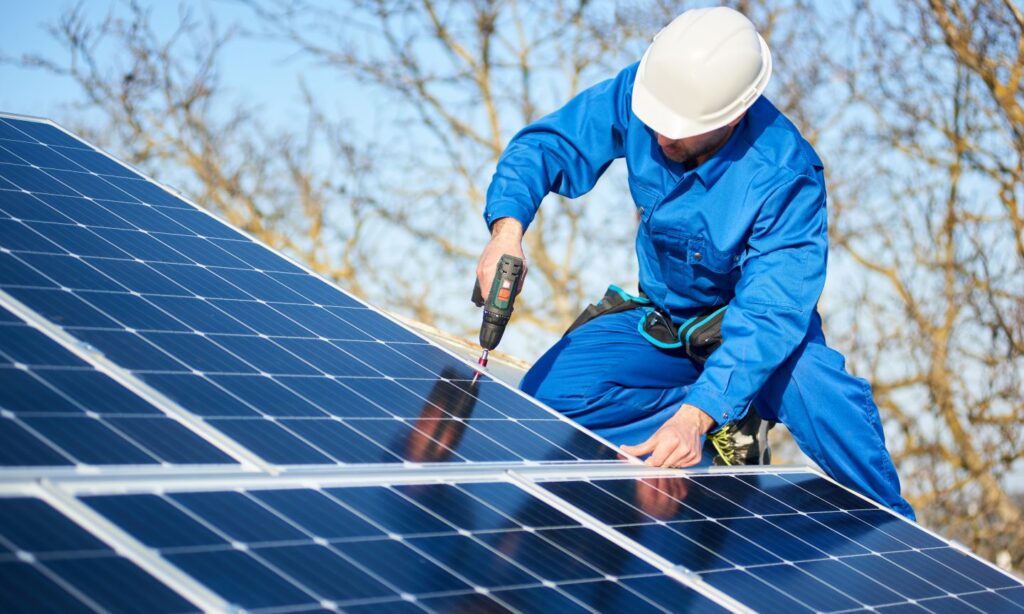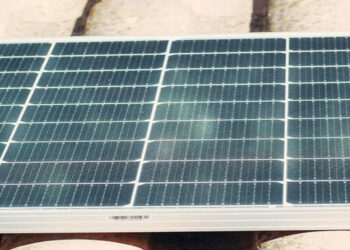Solar panel have risen recently as more people look for sustainable, cost-effective ways to generate electricity. However, despite their growing popularity, there are still many myths and misconceptions about solar panels.
Solar panel convert sunlight into electricity. The PV cells absorb sunlight and convert it into direct electricity, which an inverter converts into alternating (AC) electricity. This AC electricity can power homes and buildings or send them back to the grid.
Despite the enormous benefits of solar panels, there is some false information about them. This information aims to dispel some myths and provide accurate information about solar panels’ efficiency, cost-effectiveness, durability, and environmental impact.
Solar Panel is Not Efficient
One of the most common myths about solar panels is their inefficiency. This is not entirely true. The efficiency of a solar panel refers to the amount of sunlight it can convert into electricity. You can measure the efficiency of solar panel by a percentage and is determine by the type of solar cells in design.
Currently, the most efficient solar panels on the market have an efficiency rating of around 22%. This means that 22% of the sunlight that hits the board is convert into electricity. While this may seem low, it is essential to note that solar panels are work optimally in direct sunlight and that even on a cloudy day, a standard solar panel can produce about 70-80% of its maximum output.
While it may seem low, the efficiency percentage should not be the only factor to consider when evaluating the performance of a solar panel.Therefore, solar panel efficiency is continuously improving, with research and development aimed at increasing the efficiency of solar cells, thus increasing the overall efficiency of solar panels. For example, scientists are currently developing new types of solar cells with the potential to reach efficiencies of up to 50%.
Solar Panel is Not Cost-effective
Another common myth about solar panels is that they could be more cost-effective. While it is true that the initial cost of installing solar panels can be high, the long-term savings and benefits of using solar energy make it a cost-effective option.
The cost of solar panels is decreasing significantly in recent years, and it continues to drop as technology improves and economies of scale are achieve. Solar energy costs are also becoming more competitive with traditional fossil fuels.
Moreso, many governments offer financial incentives and rebates to encourage the adoption of solar energy. These incentives, combined with long-term savings on electricity bills, can make solar panels a cost-effective option for many households and businesses.
Therefore, solar energy’s energy savings and environmental benefits make it a wise investment that will pay off in the long run. While installing solar panels may be expensive, the long-term savings, environmental benefits, and financial incentives make solar energy a cost-effective option. It is essential to consider the long-term benefits when evaluating the cost-effectiveness of solar panels.
Solar Panel is Not Durable
Another myth about solar panels is that they need to be more durable and require frequent repairs or replacement. However, this is different.
Solar panels are of durable materials such as glass and aluminum, which can withstand extreme weather conditions and last for decades. Most solar panels come with a 25-year warranty, which is a testament to their durability.
In terms of maintenance, solar panels require very little upkeep. The only maintenance required is to keep them clean by removing dirt and debris that may accumulate on the surface, using a soft-bristled brush. Solar panels are also resist extreme temperatures, high winds, and even hail. It means they can withstand the elements and last for a long time. They are a long-term investment that can withstand the elements and provide clean energy for many years.
Solar Panel is Not Environmentally Friendly
Another myth about solar panels is that they are not environmentally friendly. It’s not true. Solar panel production requires using resources and energy, which can have an environmental impact.
However, the environmental benefits of using solar energy far outweigh the impact of its production. Once installed, solar panels do not produce emissions or pollutants and generate clean, renewable energy from the sun. It helps to reduce dependence on fossil fuels and decrease greenhouse gas emissions.
Solar energy is a sustainable energy source that does not deplete natural resources or create waste products. It means that it does not contribute to air or water pollution and does not produce toxic waste.
Therefore, solar panels has some environmental impact, the long-term benefits of using solar energy far outweigh any adverse effects.
Why Choose Solar Panel
Solar panels are a reliable and sustainable energy source that can help reduce dependence on fossil fuels and decrease gas emissions. Despite some common myths about solar panels, they are efficient, cost-effective, durable, and environmentally friendly.

Also, solar panel efficiency is continuously improving, and the cost of solar panels has decreased significantly in recent years. They are durable, require minimal maintenance, and have a long lifespan. Furthermore, the environmental benefits of using solar energy far outweigh the impact of its production.
Bottom Line
It is essential to consider the long-term benefits of solar energy when evaluating its effectiveness and not by myths and misconceptions.
Solar panels are a wise investment; as technology improves, they will become an even more viable and cost-effective option for generating clean, renewable energy.








